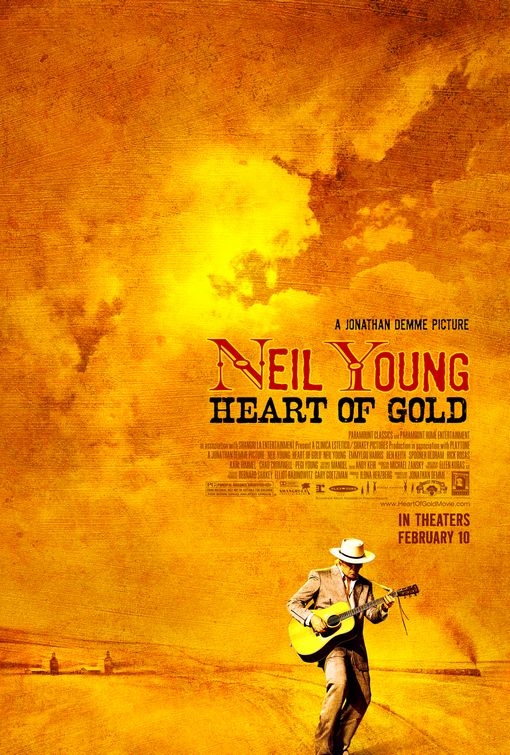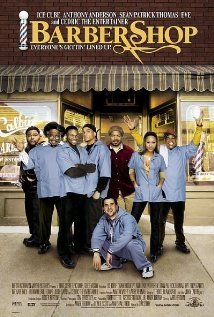“The “Wisdom” of the Gang”

| None | Light | Moderate | Heavy | |
|---|---|---|---|---|
| Language | ||||
| Violence | ||||
| Sex | ||||
| Nudity |
What You Need To Know:
Despite excessive, mostly light foul language, BARBERSHOP is not nearly as offensive as other African American movies of late. The protagonist is a good, honest, family man on a genuine search for the purpose to his life. Though there is anti-white, politically-correct racial talk among the men, there is also a great deal of balanced thinking amid all the humor. Thus, the movie’s eclectic pagan worldview contains some positive moral elements. For example, one of the barbers gives a little speech about providing discipline, self-control and education for one’s children.
Content:
(Pa, PC, ACap, AP, B, AB, LLL, V, S, A, DD, MM) Eclectic pagan worldview with politically correct, anti-capitalist African American elements expressed but also rejected with some moral elements including genuine search for real truth and evil punished in the end as well as a couple of borderline, anti-Christian slurs about Jesus; strong language with 55 mostly light obscenities, two strong obscenities, and two profanities; some street violence with guns flashed, store break-in and robbery, mild slugging with fists, girl smashes car, etc.; allusions to sex with man rubbing the back side of a woman in jeans and much talk about the positive qualities of large female posteriors; no nudity; alcohol use; smoking and light references to drugs; and, gossip, betrayal, stealing, cheating, loan-sharking, etc.
More Detail:
Just as Calvin’s mulling it all over, the man from the bank pays a visit and tells him that he’s not going to get any more loans until he pays his property taxes.
In the meantime, the news reports that an ATM machine has been stolen. Two comical crooks are seen lugging it from place to place, looking for somewhere to hide it and smash it open. They keep encountering a giant man, who blocks their way as they try to maneuver up staircases and around treacherous corners.
Back at the shop, their cousin Richard, a two-time felon, is trying to fly right and live clean, as a handful of co-workers and daily “regulars” philosophize about the meaning of life. One barber is a condescending intellectual, who makes fun of the only white barber in the shop, a “brother wannabe.” The intellectual asks him, “You think you got a Negro card?”
Soon, Calvin is approached by the loan shark, Lester Wallace, who offers to buy the barbershop, giving Calvin $20,000 in cash. The men shake on the deal, but Calvin soon finds out that Wallace plans to turn the place into a “gentleman’s club.” It’s too late, though. Wallace won’t let him out of the deal. He and his goons threaten Calvin not to renege on his agreement, and they chase him down to forcefully re-give him the money he tries to return.
Calvin must decide, Will he be able to get out of the deal with Wallace? Does he even want the barbershop anymore? If not the barbershop, then what DOES he value, instead? The old, “wise” barber reminds him that his father ran the shop the old fashioned way. He tells the others that the barber used to represent the counselor, the fashion expert, the style coach, and the pimp. Nowadays, he laments, the new barbers have no skill or sense of history. The old guy explains that the original owner, Calvin’s dad, gave people free haircuts because he wanted to invest in people, to give anyone who needed it an opportunity for a new beginning. He didn’t mind dying in debt because he had helped people along the way.
Calvin ponders all these issues, as he must simultaneously help Ricky find out who stole the ATM machine and framed him for it.
BARBERSHOP is an interesting bit of filmmaking. Despite the excessive, mostly light foul language, this movie is not nearly as offensive as other African American movies of late. The protagonist is a good, honest, family man on a genuine search for the purpose to his life.
Though there is anti-white racial talk among the men, there is also a great deal of balance amid all of their humor.
For instance, the wise old barber says something like, “The blacks need to admit the truth about three things: 1) Rodney King should have gotten the beating he did because he deserved it; 2) O.J. did it; and, 3) Rosa Parks didn’t do anything but sit on her a–; she’s not a black hero.” He states, however, in a discussion about whites paying restitution to blacks, “We got welfare and family values. Ain’t that reparations?”
When another barber suggests that each African American be given $100K, another barber declares something like, “I don’t want that money. We don’t need that money. We need restraint . . . discipline . . . to be on time, to teach our kids well.”
Family and father are revered in this movie, though much of the talk of the singles is on how to score with women with large bottoms. Regrettably, too, there are a couple of questionable discussions using the name of Christ. In one instance, the intellectual yells to the guy he doesn’t like, “You don’t even know that Jesus Christ was not a Christian; He was a Jew!” In another instance, Ricky, the con man, tells another guy that he must show his woman that he would (beat up) Jesus Christ Himself if He ever disrespected her.
The blacks in this movie call each other names like “nigger” and “super-sized Mandella,” from time to time, and there is also a Viagra joke. Overall, though, for this type of movie, there is a great deal of balance in the outlook and discussions. It’s just very difficult to overlook the absurd amount of foul language in the movie.


 - Content:
- Content: 





